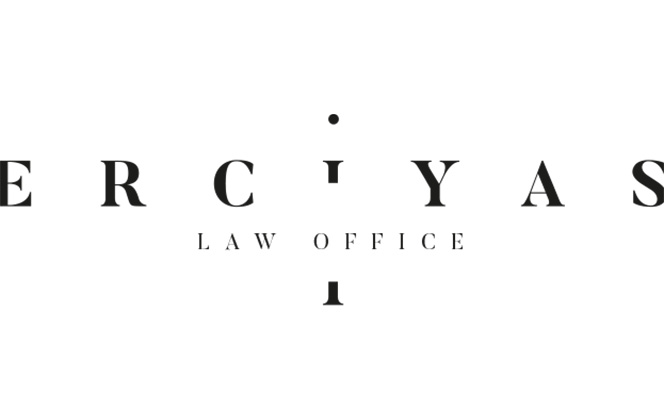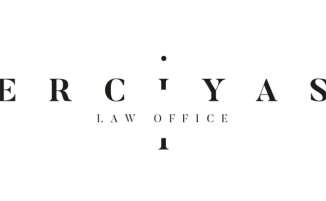The organised retail sector is one of the largest sectors in Turkey with an annual business volume of $80bn, 100,000 stores and a capacity of direct employment of 1.5 million people. These are the sales and service areas visited by most of the Turkish population to meet their daily needs and demands.
Especially retail e-commerce, among the trade transactions made on the internet, has achieved a significant growth rate with the potential it has in the world and in our country. Removing time and place restrictions from shopping and providing momentum in transaction increases the attraction of the customers day by day.
Due to the Covid-19 pandemic, which emerged in China at the beginning of 2020 and spread rapidly to the world, the closure of physical stores and markets in many countries and the encouragement of consumers to stay at home have had a significant impact on retail e-commerce. During this time, many consumers have started to use the e-commerce method for the first time to meet their mandatory needs (for example, elderly consumers and those living in small cities), and most of the suppliers either took place in for the first time or invested more into e-commerce business.
The organised retail and e-commerce sectors try to keep up with all these developments on the one hand, and on the other hand, they try to comply with the legislations issued by the regulatory authorities to protect consumers.
As a reflection of the aim of protection of the consumer, the EU Directive on the implementation and modernisation of the regulations on Consumer Protection No. 2019/2061 was published on 7 July 2021. The Directive is also known as the ‘Omnibus-Directive’, and it amends four different EU directives, one of which is the Directive 98/6/EC on Consumer Protection in the Indication of the Prices of Products Offered to Consumers (Price Label Directive).
According to the Price Label Directive, the member states of the European Union are obliged to transpose it into their domestic laws until 28 November 2021. The Price Label Directive brings significant changes to protect and inform the consumer, especially regarding discount sales advertisements and determination of the discounted price.
Due to close trade relations with the European Union, Turkey chose to harmonise the domestic law with the Price Label Directive.
In this context, the Turkish Ministry of Commerce put the Regulation on the Commercial Advertisement and Unfair Commercial Practices (Regulation) into force on 1 March 2022.
The Regulation amended existing regulations on personalised pricing, discounted sale advertisements, customer comments and some examples of unfair commercial practices. It is understood that one of the main purposes of all these important amendments is to protect consumers, especially in the field of e-commerce, which has gained serious momentum with the Covid-19 pandemic.
The new rules on advertising for discount sales brought by the Regulation are the most in need of explanation for an appropriate implementation.
Price advertising is one of the most preferred and the most effective advertisements. All businesses will be pleased to reach more customers by using price advertising effectively. However, at this point, specifically the retail sector has raised concerns about the ambiguity of some new rules which may also cause problems for practitioners. On the other hand, since the Regulation came into effect shortly after its publication, the retail sector did not have sufficient time to digest the amendments and comply with them. Consequently, it became more important for legal practitioners to find answers for the most debated provisions of the Regulation.
Article 14 (3) of the Regulation about the discounted sales advertising and the determination of the discounted sales price is amended as follows:
‘Discounted Selling Price
Discounted Selling Advertisements
Article 14 (3):
In determination of selling price of a good or service before discount is applied, the lowest price applied within thirty days before the discount is taken into consideration. When calculating the amount or rate of the discount in advertisements for perishable goods such as fruit and vegetables, the price right before the discounted price is taken as a basis. The burden of proof regarding these matters lies with the advertiser.’
Obviously the amendment of Article 14 (3) brought many questions from the retail sector and chain stores regarding the interpretation of the scope of the provision.
Some examples of these questions are whether it would be against the Regulation to share price information directly without mentioning the price before discount or whether the statements such as ‘constant cheapness’ or ‘crazy price’ etc are against the Regulation or whether the discounts provided for the customer loyalty cards are in the scope of the Regulation etc.
Hundreds of questions arose in terms of new products offered for sale and whether the sales price information recommended by the manufacturer would be against the regulation.
Considering the urgent need of the retail sector for a clear interpretation of the new provisions, we have identified some areas where the Regulation will not be applied at least, and developed some answers and comments in line with the international practice.
Accordingly:
Advertisements on the discounted price without mentioning the price before the discount are not in the scope of Article 14 (3).
As the Regulation regulates the situation in which the previous sale price and the discounted sale price are included in the advertisements at the same time for advertising purposes only. In this case, it will not be a problem to share only the current price information about the product in the advertisements. Likewise, expressions such as ‘constant cheapness’, ‘crazy price’ etc are also appropriate as long as there is no previous price to be compared.
It is possible to have the same interpretation for discounts on loyalty cards. Personalised discounts made through loyalty cards are in compliance with the Regulation as long as they are not included in any advertisements.
The Regulation is not to be applied for new products offered for sale.
Since the Regulation targets the advertisements about the previous selling price of the products, it is considered that the business can be able to advertise on the previous selling price of seasonal or first-time launched products. Consequently, it has been considered that advertising on the sales price recommended by the manufacturer or supplier is in line with the Regulation. In this regard, businesses are only obliged to pay attention to the unfair competition provisions of the Turkish Commercial Code.
Advertisements such as ‘buy 1 get 1 free OR buy 3 pay for 2’ are not in the scope of the Regulation.
As stated above, advertisements mentioning previous price information are targeted in the Regulation. Therefore, sales promotion campaigns in which no discount is made on the price, instead two or more products are offered to the customers at the same price, do not fall into the scope of the Regulation.
Obviously, retail sector and e-commerce business will keep struggling to comply with the Regulation and find answers to their questions.
Most recently, the Turkish Ministry of Commerce has prepared a draft guideline on the implementation of the Regulation to address existing questions and compliance issues. Although the draft guideline has satisfying answers to many of the questions, there are still many areas that need clarification.
The Turkish Ministry of Commerce and the organised retail industry work together to optimise the draft guidelines for solving current problems.
For more information, please contact:

Nihat Erciyas
Managing partner
nihat.erciyas@erciyas.av.tr
Erciyas Law Office
Oğuzlar Mahallesi 1364.Sokak No:4 Kat:2-3 Balgat Çankaya / ANKARA
T: +90 312 905 50 50
E: erciyas@erciyas.av.tr














